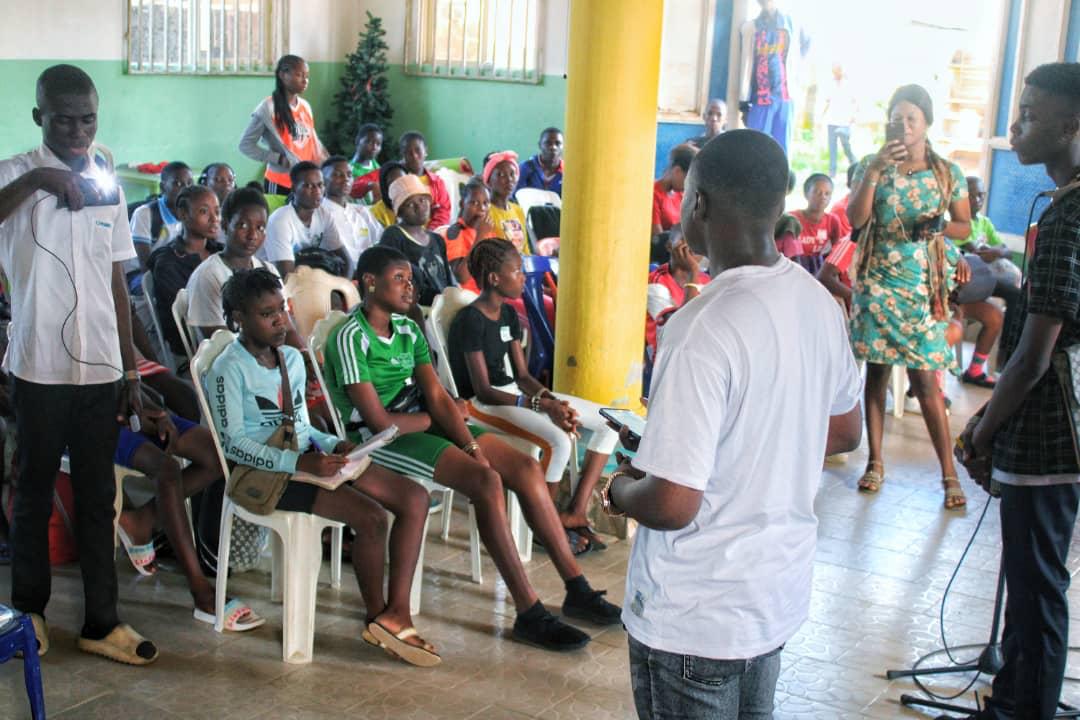Gabriel Adeyeye is a digital marketing strategist with eight years of experience and currently serves as Head of Digital Marketing at iFePay, a UK-based fintech company helping Africans abroad send and manage money seamlessly. Known for his down-to-earth style and sharp marketing instincts, Gabriel is passionate about building real connections—not just flashy campaigns. ITPulse caught up with him to talk about growth, trust in fintech, and how today’s marketers can make a real difference.
What got you into digital marketing in the first place, and what keeps you going?
Honestly, it was a happy accident. I started out in traditional marketing after uni, and I was getting a bit bored with it, if I’m being honest. Then I ran a Facebook ad for a friend’s small business and got completely hooked. Seeing real-time results—who clicked, what they bought, and what we spent—was a game changer. What keeps me going? It’s the pace. Just when you think you’ve got things figured out, the algorithm shifts or a new platform shows up. At iFePay, we’re constantly adapting—especially in fintech, where trust is everything. You can’t just throw money at Facebook ads and hope for the best. You’ve got to earn people’s attention—and their trust.
The industry moves so fast. What’s been the biggest challenge?
Keeping up without losing your mind, honestly. When I started, it was just email, a bit of Google Ads, and Facebook. Now it’s TikTok, YouTube Shorts, LinkedIn, Instagram Reels—it’s endless. But the harder part is how much savvier people are now. They know when you’re trying to sell them something. Gen Z, especially, will call you out if you’re being fake. We ran a campaign last year we thought was clever, but the feedback was brutal. And they were right—we were trying too hard to be trendy instead of just being useful. That moment taught us a lot. Now, we focus on being genuinely helpful. It’s less flashy, but it builds way more trust.
What makes someone good at digital marketing?
Curiosity, without a doubt. You’ve got to be obsessed with figuring out why people do what they do. I spend more time than I’d admit reading comments—not because I’m nosy, but because that’s where the insights are. You also need to be okay with being wrong. I’ve launched campaigns I was sure would crush it, and they flopped. It’s part of the process. You learn, tweak, and keep moving. And please, understand your numbers. Likes and shares are nice, but they don’t pay the bills. Learn how to read data properly—where the drop-offs are, what drives conversions, what moves the needle.

Fintech marketing must be tricky—how do you build trust in a space like this?
Gabriel Adeyeye: It’s like asking someone to hand you their wallet while they’re standing in a room full of pickpockets. Fintech is crowded, and people have been burned before. So we keep things simple and honest. We’re clear about fees, security, what we can and can’t do. And when things go wrong—which happens in tech—we own it. That honesty builds more credibility than trying to be perfect. We also create a lot of educational content. We don’t just say “download our app”; we explain how to spot scams, how money transfers work, how to protect your account. It’s slower work, but it builds a more loyal user base.
What’s your take on AI in marketing—tool or hype?
Bit of both. We’re using AI, but not to write our tweets or captions. That would be obvious—and honestly a bit cringe. We use it more behind the scenes—predicting churn, understanding when people are most likely to engage, or spotting unusual patterns in behaviour. Like, we noticed users who open the app on Sunday evenings are more likely to upgrade. That insight came from machine learning. But deciding what to do with that info? That still takes human understanding. AI gives you the “what,” but humans still give you the “why.”
How do you balance creativity with data and analytics?
That’s the sweet spot. Data should inform creativity, not replace it. For example, if we know video performs better on LinkedIn in the morning, that’s helpful. But the data doesn’t tell us what story to tell or how to tell it in a way that makes people care. That’s still the human part. You can have stunning visuals, but if the story’s off, it won’t land. Likewise, you can be a data wizard, but if your campaign lacks heart, it’s just numbers on a screen.
What’s your working relationship like with other departments—product, customer service, etc.?
Collaboration is everything. Some of our best ideas have come from casual chats with customer service, where we hear the real questions people are asking. Or product telling us what’s coming next and how we can frame it better. At iFePay, we have open marketing meetings. Anyone can jump in—tech, sales, support. It sounds chaotic, but it keeps us sharp. Engineers will flag if something isn’t realistic, sales will tell us what people are asking for, and support will tell us if we’re being too clever. We all want the same thing—customers who trust us and stick around. Marketing can’t live in a bubble.

What’s next for you?
I’m really interested in sustainable marketing—doing less, but doing it better. There’s so much noise out there. I think the future lies in quality over quantity. I’m also keen to mentor more young marketers, especially Nigerians. There’s so much raw talent, but not enough guidance on how to present ideas, deal with rejection, or speak up in a room full of decision-makers. If I can help even a few people find their footing, that’s a win.
AI gives you the “what,” but humans still give you the “why
And finally—what advice would you give someone who wants to get into digital marketing?
Start small, but start. Pick one thing—email, social, SEO—and go deep. Don’t try to do everything at once. Second, love the data. You don’t need to be a genius with spreadsheets, but you need to understand what the numbers are telling you about real people. Third, develop thick skin. Campaigns fail. Feedback can sting. Learn from it and move forward. And lastly—don’t forget the human behind the click. Every impression, every conversion, is a real person trying to solve a real problem. If you focus on genuinely helping, you’ll always stay relevant.



